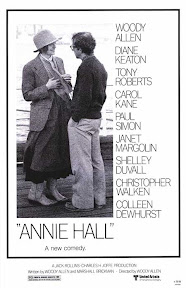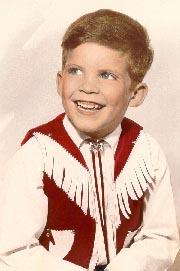 Annie Hall (1977) by Woody Allen: 93 minutes, 8.2 IMDB, 97.8% fresh tomatoes
Annie Hall (1977) by Woody Allen: 93 minutes, 8.2 IMDB, 97.8% fresh tomatoesIt's strange, but this film was more of a comedy and less of a drama than I'd remembered it to be.
My notes:
- 0:11:00 Walking sequence, probably as long as the 400 Blows sequences, but much more bearable.
- 0:14:00 Hah! It's an Ingmar Bergman film.
- 0:17:30 Marshall McLuhan! Yes, if only life were like that.
- 0:28:00 Woody Allen wonders what Diane Keaton would look like naked. We the audience must wait until 2004 to find out.
- 1:22:00 Grand Illusion is a funny film if you're high.
The cousinnephew summary:
- I really liked it.
- Like the method of story-telling.
- Allen does different camera styles in one film.
- The route is narrative with main character as the story teller.
- He talks right into the camera.
- (Asked about script, writing, directing, cinematography/lighting, editing:) This was good in a few categories. The acting was very good, as well as the directing and editing.
- (What stood out to you as being notable?) The style of the film. The way he goes through all his different relationships and all the events of his life with different people. And how he explains. It's very straightforward; very clear.
- He used his narration style to build on his comedy. He used the very pessimistic main character; someone who looks on life as a downer who is yet a comedian.
- (I asked about what he'd emulate or avoid in his own filmmaking style.) His editing work, but I don't know how to say this specifically.
- This is a fun film because it's so fast-paced. There's so much intellectual talk. It almost seems like there's definitely a point to the passerby conversations, with different people about things that you think wouldn't matter with the film's plot. But that's what builds up the film's character. It's how you get to know the characters in the film rather than through their real-life conversation. You see a lot with Quentin Tarantino in Pulp Fiction and his new one, Death Proof. They have long conversations in the movie. The conversation actually depicts the character and is relevant to the film itself.
Some links:


No comments:
Post a Comment